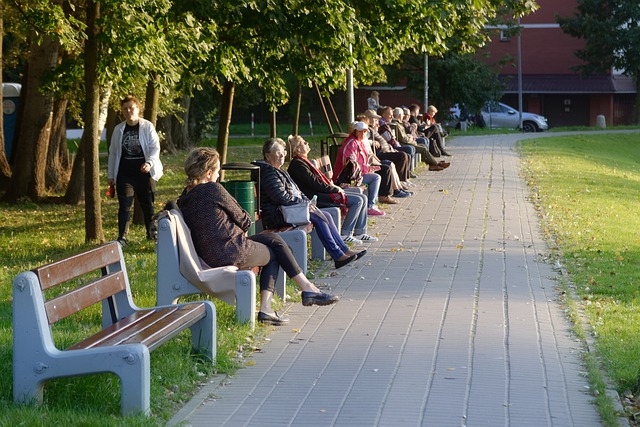Isolation among seniors is a growing concern, exacerbated by factors like living alone, mobility challenges, and loss, leading to loneliness, depression, and cognitive decline. Elderly Companion Services address this issue by providing personalized companionship, social interaction, structured routines, and assistance with daily tasks. These services significantly improve mental health, cognitive function, and overall well-being, fostering a sense of belonging and promoting physical and mental health for seniors living alone or experiencing mobility issues. Community programs and technology also play vital roles in mitigating isolation.
Social interaction is vital for isolated seniors, offering a shield against the detrimental effects of loneliness. This article delves into the profound impact of isolation on older adults, highlighting its physical and mental health consequences. We explore the significant role of Elderly Companion Services in fostering social connections and providing much-needed companionship. Additionally, we offer practical strategies to combat loneliness, emphasizing community engagement, technology adoption, and volunteer programs.
- Understanding the Impact of Isolation on Seniors
- The Role of Elderly Companion Services
- Strategies to Foster Social Interaction and Combat Loneliness
Understanding the Impact of Isolation on Seniors

Isolation can have profound effects on the well-being of seniors, leading many to experience feelings of loneliness and depression. As the population ages, addressing social isolation among the elderly becomes increasingly vital. Seniors often find themselves disconnected from their communities due to various factors such as living alone, mobility issues, or the passing of close friends and family members. This sense of disconnection can significantly impact mental health, cognitive function, and overall quality of life.
Elderly Companion Services play a crucial role in mitigating these effects by providing companionship and social interaction tailored to the unique needs of isolated seniors. Professional companions offer conversation, engage in meaningful activities, and assist with daily tasks, fostering a sense of belonging and purpose. By filling the gap left by dwindling social networks, companion services contribute to improved physical and emotional well-being for the elderly population.
The Role of Elderly Companion Services

Elderly Companion Services play a pivotal role in bridging the social gap for isolated seniors. These services provide not just companionship, but also a structured routine that can alleviate feelings of loneliness and depression. Companions offer meaningful conversations, engage in leisure activities, and assist with daily tasks, thereby enhancing the quality of life for older adults who may struggle to connect with others due to mobility issues or living alone.
Moreover, Elderly Companion Services foster a sense of belonging and improve cognitive function by stimulating mental engagement. They cater to unique needs, ensuring that seniors receive personalized care and companionship tailored to their preferences and abilities. This support system is instrumental in promoting social interaction, which is essential for maintaining physical and mental health as individuals age.
Strategies to Foster Social Interaction and Combat Loneliness

Social interaction is vital for elderly wellbeing, especially for those experiencing isolation. For seniors living alone, combating loneliness requires intentional strategies to foster meaningful connections. One effective approach is to leverage Elderly Companion Services, which offer personalized support tailored to individual needs and preferences. These services can include regular visits from trained companions who engage in conversations, play games, or simply spend quality time together, thereby reducing feelings of solitude.
Additionally, community-based programs designed for seniors provide opportunities for social interaction in a group setting. From senior centers to volunteer groups, these activities encourage participation, foster friendships, and offer a sense of belonging. Leveraging technology can also be a game-changer; video calls, online forums, and social media platforms allow isolated seniors to stay connected with family and friends, bridging the gap and mitigating the impact of physical distances.
Social interaction is a vital component of a fulfilling life, especially for isolated seniors. By understanding the impact of loneliness and implementing strategies such as utilizing Elderly Companion Services, we can foster meaningful connections and enhance the quality of life for our aging population. These services play a crucial role in navigating the challenges of social isolation, offering companionship and opportunities for engaging activities that combat loneliness effectively.
